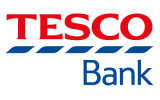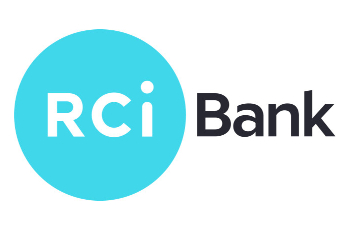This comparison simply includes all savings accounts.
Best Savings Accounts For £100,000
£500 bonus to boost your savings if you receive a residential purchase mortgage offer from Leeds Building Society
Best Savings Account For £100,000
Historically banks and building societies often provided higher rates of interest for larger deposits e.g. £100,000+
With interest rates falling on savings accounts to record lows few banks provide incentives for higher deposits. Banks are more interested in lending money than paying interest to savers.
See above for a selection of accounts that pay relatively high interest from instant access to fixed rate bonds.
If you need to find out the best savings options for your £100,000, you may want to use a combination of the savings accounts below. By splitting your £100k over a number of accounts you could access the best interest available.
However, before you do so, you should familiarise yourself with some of the factors that may affect your decision as to where to deposit your savings.
Interest rates
Savings accounts have had relatively low interest rates in recent memory. This is because the majority of savings accounts interest rates are dependent on the Bank of England base interest rate, which is currently close to historic lows.
It is no surprise that many people have considered other options to cash to get the income yield they need.
FSCS protection
If protecting your money is paramount then you should review the savings accounts options available to you.
This is because the majority of savings accounts are protected by the Financial Services Conduct Authority (FSCS). Therefore, any savings from £1 to £85,000 (£170,000 for joint accounts) is fully protected.
This means that if something happens to your bank, building society or credit union then you will receive your entire capital within 7 days.
This added protection gives you peace of mind and allows you to slowly build your savings, without having to worry about its safety.
Extent of FSCS protection
Bear in mind that some banks are a part of bigger organisations, which may also have other brands offering banking services.
Even in the event that the bank is a part of a bigger organisation, the FSCS protection will stretch over all of the brands. However, it should be noted that it will only protect up to £85,000 of the savings.
For example, if you have £50,000 in one bank and £50,000 with another bank under the same organisation then you are only guaranteed protection on the first £85,000.
In light of this, if you wanted your entire £100,000 to benefit from FCSC protection, you would have to split it between two separate banks with two separate banking licences.
Alternatively, you could open a joint account with another party to ensure your £100,000 is fully protected. If you decide to do this, you should be aware that the other party would be able to access the £100,000 without your permission.
Tax
If you are looking to get the best return on your £100k through savings accounts, then you should bear in mind that you may have to pay tax on the interest you earn.
From April 2016, basic rate tax payers can earn up to £1,000 in interest before being subject to tax. For higher rate tax payers, they can earn up to £500 tax-free interest in a savings account.
This is important to keep in mind, especially if you want to get the most out of your capital, as it could affect your overall return from your savings.
Minimising the effect of tax with an ISA
ISAs are a great way to avoid the effect tax has on your savings. This is because ISAs allow you tax-free interest, on deposits up to an agreed yearly limit.
For the 2017/18 tax year the agreed limit for an adult is £20,000 and £4,128 for anyone between 16 and 18 years old.
You could use the annual allowance to earn tax-free interest for years to come by depositing £20,000 on an annual basis in an ISA.
Alternatively, if you wanted to deposit as much of your £100,000 this year as possible, you could utilise the other ISA allowances in your family.
For example, you could deposit £20,000 in your ISA and £20,000 in your partner's ISA and £4,128 for any members of the family aged between 16 and 18 years old.
Types of ISA
The majority of banks or building societies will offer two different ISAs.
Instant access cash ISAs: These allow you to withdraw money whenever you need without paying a penalty, making them ideal for short term saving.
Fixed term ISAs: These require you to not withdraw your savings from your ISA for a prolonged period of time.
Fixed term ISAs have similar conditions to fixed rate bonds, so you may be unable to withdraw money until they reach the end of their term or have to pay a penalty in order to do so.
ISAs do not always offer the best interest rates, so you will need to assess whether any tax savings will outweigh the benefits of the higher interest rates provides by other types of accounts.
Instant access savings accounts
You may have maxed out your ISA allowance for this year and have some savings remaining or you may decide that the potential to access higher interest rates outweighs the benefits of tax-free earnings. Whatever the case may be, instant access savings accounts do offer an attractive option for savings.
An instant access savings account allows you to withdraw from your savings at any time. This allows you to remain flexible with your savings.
However, it is important to bear in mind that in exchange for this flexibility you may earn less interest than other accounts available on the market.
Therefore, if you are confident that you will not need your savings in the near future, an instant access account may not be the best account to split some of your £100,000 savings in.
Easy access savings accounts
There are some banks that offer easy access savings accounts. In general, these accounts are extremely similar to instant access accounts. The one common difference between easy access and instant access accounts is the delay on withdrawal.
A withdrawal from an easy access account can sometimes take a few days. If you are unlikely to need your savings, then an easy access account may not be the best way to grow your savings.
Current accounts
Traditionally, current accounts have not had the most competitive interest. However, nowadays banks are offering competitive interest to entice people to switch their current accounts.
Although these high interest current accounts come with conditions such as minimum balance and a compulsory number of direct debits, if you are able to satisfy the requirements, you could access higher interest than other accounts on the market.
It is not advisable to deposit your entire £100,000 savings into a current account, as they usually have a threshold over which they will not pay interest. But you could deposit a smaller amount and benefit from competitive interest. You could then deposit any remaining savings into another option.
Fixed Rate Bonds
If you are prepared to tie up your savings for prolonged periods, you could explore fixed rate bonds.
Fixed rate bonds offer some of the highest interest available, which is guaranteed for the life of the bond, on the proviso that you do not make a withdrawal for the fixed term.
Typically, the longer fixed rate bonds provide the higher rate of interest. The majority of fixed rate bonds tend to run between 1 and 5 years.
In the event you do want to withdraw your savings from a fixed rate bond, you will often have to give written notice and incur a penalty. Note that the penalty can sometimes be a number of days' worth of interest, which may reduce your savings considerably.
If you need access to your savings in the near future, but want to benefit from the higher interest of a fixed rate bond, you could take advantage of the shorter fixed rate bonds that banks have started to offer. These types of fixed rate bonds run between 6 and 18 months, but their interest rates are much lower than the longer bonds.
National Savings
National savings is another route to access competitive interest. National savings and investments (NS&I) are a government agency that offers a range of products for people to get potentially healthy returns.
When you deposit or invest your savings with NS&I you are lending your money to the government.
The products available are constantly changing, but the NS&I usually have some of the following:
- Income Bonds
- Premium Bonds
- Direct ISA (a Cash ISA)
- Guaranteed Equity Bonds
- Direct Saver – a savings account
- Fixed Interest or Index-Linked Savings Certificates
- Guaranteed Growth Bonds and Guaranteed Income Bonds
The degree of access you have to the money you deposit will be determined by the product itself.
For example, you will be able to make a withdrawal without charge in NS&I savings account, whereas you may incur an early encashment penalty if you try to withdraw from a premium bond.
Next steps
Whatever you intend to do with your £100,000 savings, it may be worth reviewing some of the options above.
Devising the best savings strategy can be the difference between getting the most of your capital and losing money in real terms.









